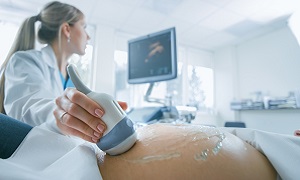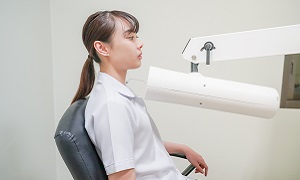Best Doctors in India for Grave's Disease treatment
Best Hospitals in India for Grave's Disease treatment
- City: Bengaluru, India
Hospital Highlights:
- Fortis Hospital Bannerghatta, Bengaluru was established in 2006.
- The hospital is a 276 bedded multi-specialty tertiary care facility.
- The hospital specializes in cutting-edge medical technology and dedicated patient care services.
- The hospital is equipped with state-of-the-art technologies like trans-radial angioplasty, trans-abdominal cardiac surgery, and computerized TKR navigation surgery.
- The hospital provides specialty medical services in cardiology, cardiac surgery, orthopedics, neurology, neuro-surgery, GI, and Minimal Access Surgery (MAS).
- City: Chennai, India
Hospital Highlights:
- Fortis Malar was established in 1992 and was formerly known as Malar Hospital.
- The hospital specializes in cutting-edge medical technology and dedicated patient care services.
- The hospital is multi-specialty, tertiary care facility with 180 beds.
- The hospital offers comprehensive medical care in specialties such as cardiology, cardio-thoracic surgery, neurology, neurosurgery, orthopedics, nephrology, gynecology, gastroenterology, urology, pediatrics, and diabetes.
- City: New Delhi, India
Hospital Highlights:
- Established in 1996, Pushpawati Singhania Research Institute is one of the top hospitals in the NCR region, as well as one of the top facilities in India for gastroenterology. The hospital is one of South Asia’s first institutes in medical and surgical treatment for diseases related to digestion.
- The hospital is equipped with state-of-the art facilities coupled with the latest equipment as well as renowned consultants from various parts of India as well as other parts of the world.
- City: New Delhi, India
Hospital Highlights:
- State-of-the-art technology and devoted healthcare professionals have been brought together under one roof at Venkateshwar Hospital to provide genuine medical care. The hospital’s professionals work together as a team to deliver the best possible treatment to their patients, using the most sophisticated equipment and information technology.
- Venkateshwar Hospital’s mission is to attain global excellence in healthcare by employing evidence-based, ethical clinical practices and cutting-edge technology by a team of highly skilled experts.
- City: New Delhi, India
Hospital Highlights:
- Sir Ganga Ram Hospital, New Delhi is known to provide the latest medical procedures with the latest technology in all of its units.
- The hospital has a team of reputed doctors, nurses, and healthcare professionals that ensure that patients receive quality care at affordable costs.
- Staffed with a team of highly qualified doctors, dedicated nurses, and paramedical and non-medical staff, the hospital aims to lead in healthcare delivery, medical education, training, and research.
- As per the vision of the founder, the hospital also provides free treatment to the economically weaker sections of society.
- Sir Ganga Ram Hospital also provides training to young doctors under the Diplomate in National Board(DNB) program. The DNB program at the hospital was started in 1984 and it is known for currently running the maximum number of DNB specialties in the country. It also has the distinction of having the first bone bank in India.
- City: Kerala, India
Hospital Highlights:
- Established in 2019, Apollo Adlux Hospital is the first Apollo Hospital in Kerala and the 73rd hospital owned by Apollo Group in India. With the state’s most advanced, comprehensive healthcare infrastructure and cutting-edge technologies, Apollo Adlux Hospital stands as an example of medical excellence in Kerala.
- With over 34 multi-specialty departments, the hospital believes in providing the best quality treatment to its patients at affordable rates, ensuring comfort at their difficult times.
- The 300-bed hospital is managed by a team of highly qualified and experienced experts who delivers exceptional hospitality to their patients and treats them with great compassion.
- With its affiliation with the Apollo Hospitals Group, the hospital aims in providing patients with top-notch healthcare services while also serving communities in Kerala.
- The hospital has good railway and road connections, and is conveniently close to Cochin International Airport.
- City: Gurugram, India
Hospital Highlights:
- Situated near DLF Cyber City, Gurugram, Narayana Superspecialty Hospital is one of the top medical facilities in the Delhi NCR region, catering to the needs of the people. Known for its commitment to quality medical care and patient service, the hospital is a state-of-the-art facility with planned and well-equipped sections, which includes a spacious OPD area as well as comfortable patient rooms.
- It is the closest super-specialty hospital from Indira Gandhi International Airport towards Gurugram, and also the nearest super specialty hospital from DLF Cyber City. It is also close to major residential areas in Gurugram.
- It is part of the renowned Narayana Health Group. Established in 2000, by Dr. Devi Shetty, a renowned cardiac surgeon, it has grown to be one fo India’s leading healthcare groups.
- City: Noida, India
Hospital Highlights:
- Fortis Hospital, Noida, stands as one of the oldest and most trusted healthcare institutions in the region, setting a benchmark for comprehensive medical care.
- As the second mega hub hospital in the Fortis Healthcare Group, Fortis Hospital, Noida, upholds a legacy of trust among more than 1.2 million patients. By integrating top-tier professionals with cutting-edge technology, the hospital delivers superior treatment across various medical disciplines.
- Specializing in advanced Neurosciences, Orthopedics, Kidney and Liver Transplant Programmes, Fortis Hospital, Noida has successfully performed over 1,500 transplants, solidifying its reputation as a leader in specialized medical interventions.
Grave's Disease
Grave’s Disease is an autoimmune disorder that leads to the overproduction of thyroid hormones. The condition is called hyperthyroidism. Amongst the various causes of hyperthyroidism, Grave’s disease is the most common source. This disease is more common in women and people below 40 years of age.
Causes of Grave's Disease
Symptoms of Grave's Disease
The symptoms and signs of Grave’s disease can be:
- Heat sensitivity
- Anxiety
- Fatigue
- Increase in perspiration
- Erectile dysfunction or reduced libido
- Irritability
- Bulging eyes (Grave’s ophthalmopathy)
- Warm, moist skin
- Palpitations (rapid or irregular heartbeat)
- Frequent bowel movements
- Fine tremors of the fingers or the hands
- Weight loss
- Sleep disturbance
- Red, thick skin mostly on the top of feet or on the shins (Grave’s dermopathy)
- Enlargement of the thyroid gland (goiter)
Diagnosis of Grave's Disease
Your doctor may perform a physical examination to check for the signs and symptoms of Grave’s disease and diagnose the condition. He or she might ask you about your family history and medical history.
Blood tests
Blood tests help in determining the levels of thyroid-stimulating hormone (TSH). TSH hormone is a pituitary hormone that stimulates the thyroid gland. Blood tests also determine the levels of thyroid hormones. If you are suffering from Grave’s disease, you might have a lower level of TSH than normal with high levels of thyroid hormones.
Ultrasound
Radioactive iodine uptake
Your doctor will determine the rate of uptake of iodine by the thyroid gland by giving you some amount of radioactive iodine. He or she will measure the amount in the thyroid gland with the help of a specialized scanning camera. The doctor can determine whether the Grave’s disease or any other ailment is the cause of hyperthyroidism by determining the amount of radioactive iodine taken up by your body.
Imaging tests
Your doctor might recommend special imaging tests like an MRI or a CT scan.
Treatment options for Grave's Disease
Radioactive Iodine Therapy
You take radioactive iodine (radioiodine) in your mouth under this therapy. The thyroid gland takes this radioiodine into its cells and the radiation destroys the overactive thyroid cells with the passage of time. Ultimately, your thyroid gland shrinks while reducing the symptoms within a few weeks to a few months. It may increase your risk of new or deteriorated symptoms of Grave’s ophthalmopathy. The treatment is not for breastfeeding women or pregnant women.
Anti-thyroid medications
Beta blockers
Surgery
Another treatment option for Grave’s Disease is thyroidectomy (removal of the thyroid) or subtotal thyroidectomy (removal of a part of your thyroid). You might need treatment to supply thyroid hormones in normal amounts after the surgery. The associated risk with this treatment is probable damage to the nerve controlling your parathyroid glands (tiny glands located near thyroid gland) and vocal cords. You might need to take lifelong thyroid medications after this surgery.
Lifestyle and home remedies
- Releasing stress: Stress worsens or triggers Grave’s disease. So, easing your stress might be helpful. You can listen to music or take a warm bath to relieve stress. Take the help of your doctor to create a plan involving good exercise, proper nutrition, and relaxation in your regular schedule.
- Eating well and exercise: Taking a balanced diet and exercising well helps to improve the symptoms during treatment. This makes you feel better. Weight-bearing exercises help to maintain bone density.
















